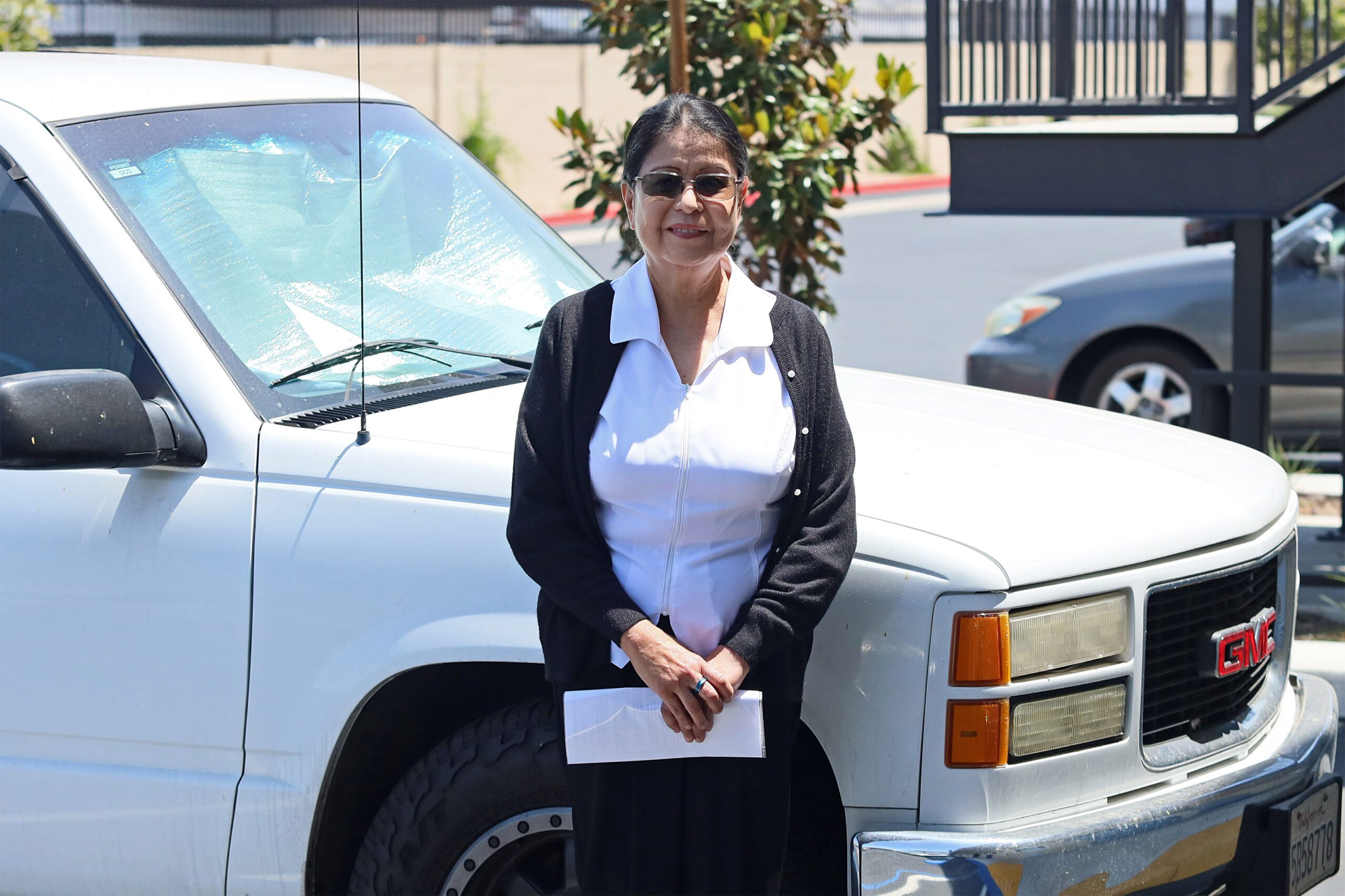
 Author: Kelly GonsalvesNovember 22, 2022
Author: Kelly GonsalvesNovember 22, 2022
 Contributing Sex & Relationships EditorBy Kelly GonsalvesContributing Sex & Relationships EditorKelly Gonsalves is a sex educator, relationship coach, and journalist. She received her journalism degree from Northwestern University, and her writings on sex, relationships, identity, and wellness have appeared at The Cut, Vice, Teen Vogue, Cosmopolitan, and elsewhere.Take the compatibility testWhat it means to be compatibleKey factors for compatibilityHow to check for compatibilityFAQTakeawayImage by Victor Torres / StocksyNovember 22, 2022Our editors have independently chosen the products listed on this page. If you purchase something mentioned in this article, we may earn a small commission.
Contributing Sex & Relationships EditorBy Kelly GonsalvesContributing Sex & Relationships EditorKelly Gonsalves is a sex educator, relationship coach, and journalist. She received her journalism degree from Northwestern University, and her writings on sex, relationships, identity, and wellness have appeared at The Cut, Vice, Teen Vogue, Cosmopolitan, and elsewhere.Take the compatibility testWhat it means to be compatibleKey factors for compatibilityHow to check for compatibilityFAQTakeawayImage by Victor Torres / StocksyNovember 22, 2022Our editors have independently chosen the products listed on this page. If you purchase something mentioned in this article, we may earn a small commission.How do you know if you're compatible with someone?
Whether you're trying to suss out your relationship compatibility with a crush or your marriage compatibility as a long-term couple, this compatibility test will give you some clues—but it's also important to understand what exactly it means to be compatible with someone.
Advertisement
This ad is displayed using third party content and we do not control its accessibility features.A compatibility test to know if you're compatible with someone.
A compatibility test evaluates whether two people are likely to have an easy, harmonious relationship based on the degree to which their personalities, lifestyles, values, beliefs, and behavioral patterns work well together.
Here's a simple, five-minute compatibility test to try out:
Are we romantically compatible?
This romantically compatibility test will take about 5 minutes.
Answer each question as honestly as possible for the most accurate results. Don't worry about picking what you assume is "the right answer" — go with what is actually most true for your relationship.
You're pretty compatible
Based on your responses, you and your significant seem to be pretty compatible. You're similar in the ways that matter, complement each other in the areas that you differ, and know how to handle the inevitable conflicts when they arise. No one is 100% compatible, but you two make it work pretty well.
Your compatibility is unclear or questionable
Based on your responses, it's not clear whether or not you're compatible with your significant other. You may not know enough about this person's beliefs and behaviors to properly assess your romantic compatibility just yet, or you may have some areas where you're highly compatible and some areas where you're highly incompatible. Consider opening up some conversations with this person about some of the topics in this quiz and in this article to help you further explore your compatibility.
And don't worry: Compatibility can be built over time between two people who are committed to doing so.
You may be incompatible
Based on your responses, there are several areas of incompatibility between you and your significant other that suggest you may not be compatible in a relationship. Your personalities, values and beliefs, and/or lifestyle preferences have some incongruencies that may cause excessive conflict in a romantic relationship. However, don't panic! Any areas of friction or difference can be managed and worked through if both people are committed to the process and to the relationship.
Reflect on the areas of friction that came up for you while taking this test and consider how important they are (or aren't) to you. Not every difference is a deal-breaker—but some are! It's up to you to decide.
You can also consider opening up some conversations with your partner about some of the topics mentioned in this quiz and in this article to help you further explore your compatibility.
How do you each show affection?
Are you both introverts or extroverts?
What are your attachment styles?
Your attachment style is your unique way of being in relationships with others. People with a secure attachment style are comfortable getting close to others, trusting them, and find it easy to love and be loved by others. There are three insecure attachment styles: avoidant, anxious, and fearful-avoidant. Avoidants can feel constrained in relationships and highly value their independence, and they can shy away from too much intimacy. Anxious folks crave closeness and constant validation in relationships, and they're sometimes described as "needy" or "clingy." Fearful-avoidants are a mix of the two.
Do you have the same political beliefs?
Do you have the same views on religion?
How do you each feel about kids?
How do you each feel about sex?
What do you each like to do on the weekends?
Are you clean people?
Are you more logical or more emotional people?
How do you each feel about alone time?
How do you navigate serious conversations?
Advertisement
This ad is displayed using third party content and we do not control its accessibility features.What does it mean to be compatible?
Being compatible means being able to exist harmoniously together with someone or something. In the context of romantic relationships, being compatible with someone means that your various individual qualities work well together such that you're able to date and share life with each other with minimal conflict.
"Compatibility is a natural, effortless way of relating to another person and feeling a connection," explains licensed couples' therapist Racine Henry, Ph.D., LMFT. "It can also be the ability to work together well and compromise around tough issues."
Two people need not be similar to be compatible. Sometimes two people are compatible because they have differing qualities that complement each other or work together synergistically.
Henry adds that compatibility can even be built intentionally: "You can either have compatibility from the beginning, or you can put effort into becoming more compatible with each other."
What makes two people compatible?
Compatibility can be affected by a huge variety of traits and behavioral patterns, some of which include:
- Personality type (introvert vs. extrovert, emotional vs. logical, etc.)
- Lifestyle preferences (clean and organized vs. messy and spontaneous, social drinking vs. sobriety, etc.)
- Values and beliefs (politics, religion, adherence to tradition vs. open-mindedness, etc.)
- Personal needs and desires (looking for something serious vs. looking for something casual, enjoys a lot of autonomy vs. enjoys a lot of togetherness, etc.)
- Sexual interests
- Life goals (focus on travel vs. focus on planting roots, focus on wealth-building vs. focus on enjoying life in the moment, etc.)
- Age
- Culture or background
- Life experiences
- Hobbies and interests
- Conflict styles
- Communication styles
Find your match today with eHarmony. Free to join.
SIGN UP NOW
However, not all of these things need to align between two people for them to be compatible.
"Personally, I don't believe a couple has to agree on anything," says Henry. "I think you have to be able to compromise repeatedly and have a mechanism for solving problems. None of these factors (personality types, family backgrounds, politics, etc.) guarantee compatibility or harmony. These can be starting points for a bond or help establish those initial feelings of interest, but when there's tension or a lack of positivity, being from the same hometown won't matter."
Any issue, disagreement, or area of disconnect can be worked through and managed if both people are committed to putting in the effort.
How to check if you're compatible with someone.
You can get some insight into whether you're compatible with someone by taking a compatibility test online. Some dating apps focused on serious relationships also offer compatibility scores to help you evaluate potential partners, including eharmony, Match.com, and OKCupid.
However, the best way to know whether you're compatible with someone is simply by spending time with them and getting to know them more deeply.
"You discover compatibility by having a series of conversations and experiencing various environments with a person," says Henry. "Travel together, spend time with their friends or families, pay attention to how they treat others, [and] check in with yourself about how you feel with their decision-making processes and coping methods."
As a couple experiences life together, they'll be able to see how they behave in various scenarios and in what ways their individual personalities, lifestyles, and behavioral patterns mesh or don't mesh with one another.
Advertisement
This ad is displayed using third party content and we do not control its accessibility features.The takeaway.
Being compatible with someone means you're likely to be able to date each other with ease, and any number of personal qualities—from how you spend your weekends to how you grew up—can impact romantic compatibility. However, any area that doesn't match up perfectly between two people can still be managed as long as both people have the skills to do so.
"Compatibility is extremely important," says Henry, "but again, it doesn't have to be there organically for it to exist at all. Don't be hesitant to work at the compatibility, and keep in mind that as you grow and develop as individual people, compatibility will change."
Advertisement
This ad is displayed using third party content and we do not control its accessibility features. Kelly GonsalvesContributing Sex & Relationships Editor
Kelly GonsalvesContributing Sex & Relationships EditorKelly Gonsalves is a multi-certified sex educator and relationship coach helping people figure out how to create dating and sex lives that actually feel good — more open, more optimistic, and more pleasurable. In addition to working with individuals in her private practice, Kelly serves as the Sex & Relationships Editor at mindbodygreen. She has a degree in journalism from Northwestern University, and she’s been trained and certified by leading sex and relationship institutions such as The Gottman Institute and Everyone Deserves Sex Ed, among others. Her work has been featured at The Cut, Vice, Teen Vogue, Cosmopolitan, and elsewhere.
With her warm, playful approach to coaching and facilitation, Kelly creates refreshingly candid spaces for processing and healing challenges around dating, sexuality, identity, body image, and relationships. She’s particularly enthusiastic about helping softhearted women get re-energized around the dating experience and find joy in the process of connecting with others. She believes relationships should be easy—and that, with room for self-reflection and the right toolkit, they can be.
You can stay in the loop about her latest programs, gatherings, and other projects through her newsletter: kellygonsalves.com/newsletter











